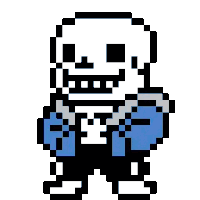Who speaks
Most of the journey is narrated by a voice that sounds close—dry jokes, item descriptions with too much
personality, a mirror that says, “Despite everything, it’s still you.” Call it the first child in the
margins, call it the game’s conscience with a sharp tongue. Chara colours this flavour
text across routes; at minimum, the voice becomes unmistakably theirs when the path turns red.
Neutral / Pacifist — the ghost
In routes that refuse dust as a shortcut, the voice behaves kindly: cataloguing rooms, nudging
puzzles, making jokes that sound older than the protagonist. It notices beds and bandages and old diaries
and keeps choosing the word “you,” as if trying to keep distance—observer, not driver. The line in the
mirror lands like a diagnostic: whatever happened before, whatever paths remain, the person in the glass
is still accountable and still themselves.
There are moments when the mask slips—harsher phrasing if needless harm is done, little satisfactions when
EXP rises—but on these timelines the voice is more archivist than instigator. The knife can stay in the
inventory forever and the story will still move. The world rewards patience with memory, and the narrator
treats memory like a way home.
Genocide — the name answers back
Choose murder as a method, and “you” becomes “me.” The text shifts, the jokes curdle, and the first child
stops pretending to be merely descriptive. By the end, the thing that was only a voice steps fully onto the
stage and introduces itself as the demon that comes when people call its name. The last acts are not
guided but taken: the slash that ends the trial, the execution that empties a throne room, the decision to
erase everything because the player asked for an ending that suited it.
What comes after
Erasure is not a credit roll; it is a transaction. To rebuild the world, a price is named. The deal is
simple: give up the SOUL, receive a reset. Accept, and the save file returns with a hairline crack running
through it. Decline, and the void does what voids do—waits without changing.
Pacifist after Genocide — the bill
Earn the good ending after selling the SOUL, and the picture does not stay wholesome. The surface is bright,
the family is whole, and then the lights go out long enough for red to open. The implication is ugly and
tidy at once: the body is borrowed, the happy world is rented, and the collector remembers appointments
even when the player pretends to forget. The file can be clean; the ledger is not.





